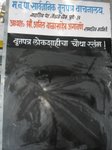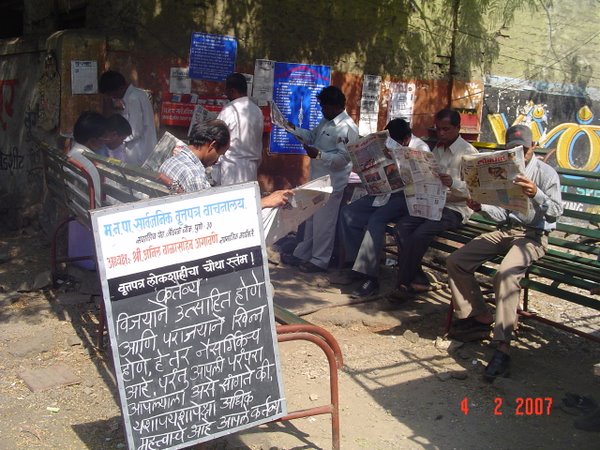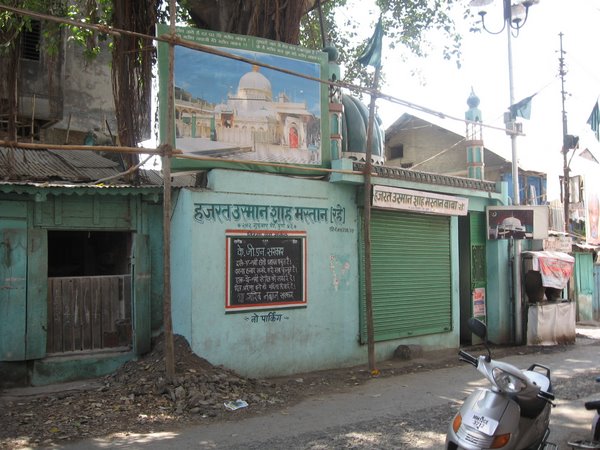
 I had a chance to chat with the entire group of the committee members, people staying in the neighbourhood to talk about my study and what they thought about it. Referring to the content of the vartaphalak they said that they always stayed away from anything that was remotely political. They wanted nothing to do with it. Their only concern was to convey good thoughts to people. And they categorically stayed away from a political agenda. I also asked them about the anti-Muslim boards. Ayaz, the committee’s chairman, was a rickshaw driver and he instantly pointed out the board near Lokhande Taalim and said that that was a really aggressive one and it was meant to incite people (bhadkaane ke liye).
I had a chance to chat with the entire group of the committee members, people staying in the neighbourhood to talk about my study and what they thought about it. Referring to the content of the vartaphalak they said that they always stayed away from anything that was remotely political. They wanted nothing to do with it. Their only concern was to convey good thoughts to people. And they categorically stayed away from a political agenda. I also asked them about the anti-Muslim boards. Ayaz, the committee’s chairman, was a rickshaw driver and he instantly pointed out the board near Lokhande Taalim and said that that was a really aggressive one and it was meant to incite people (bhadkaane ke liye).Ayaz Sheikh also mentioned that women, when they passed the vartaphalak could also get an opportunity to read some religious matter. He said that in their community women were not given much education and hence through this vartaphalak they could at least read some good thoughts. At the same time he admitted that attitudes in the community towards women sitting out in public were conservative, making it impossible to occupy such spaces.
There was also a lot of talk about the unity in their mohalla. But they said that even when there are riots, their area is never affected. They all stay together. Everybody helps each other. They also told me about the time when a lot of thefts were happening in the neighbourhood. The boys used to patrol in the nights till they caught the culprits and handed him over to the police. Even for the Urus, Shahid had mentioned that they did not take any vargani (contributions) from the people. The entire mohalla contributed towards the effort by contributing in kind; giving foodgrains and other necessary material. Shahid’s uncle had provided all the electrical equipment for both the days of the festival.





No comments:
Post a Comment